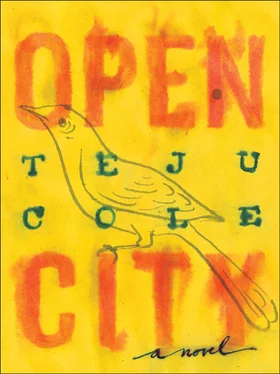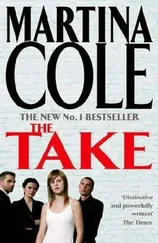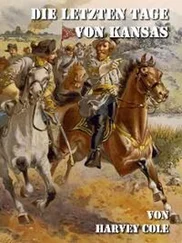Her bright yellow hair had already, by that April of my father’s death, begun to show traces of gray. She’d taken to wearing a scarf, which was usually pulled back, so that her shiny forehead and the first inch or so of her hair were visible. She was wearing the scarf the afternoon she decided to take me with her into her memories. None of our many helpers was around that day, none of the aunts and friends who were making food for us and taking care of the house. We were in the living room together, the two of us. I had been reading a book, and she’d come in and sat down and begun to talk, in an abstracted but unhurried way, about Germany. Her voice, I remember, had had the tone of someone continuing a story, as though we had been interrupted and she were simply picking up a dropped thread. When she said “Julianna” and “Julia,” with no concession to English pronunciations, she suddenly seemed even stranger to me. I felt, at that moment, the anger leaving my body, and I saw this woman with her graying hair and gray-blue eyes, and a faraway voice which, because it could not talk about the death that had just shattered us, had begun to describe long-ago things.
I had nothing to put in the place of my fading anger. I had no feeling for the stories she was telling or the longing behind them. I struggled to concentrate. Mother spoke about Magdeburg, about her girlhood there, things I had had only the shadowiest idea about, things that she now moved hesitantly into lighter shadow. Because I wasn’t attentive, many of the details eluded me. Was I distracted because I was embarrassed? Or was it simple surprise at this sudden willingness of hers to lay the past bare? As she spoke, she would smile slightly at one memory, frown slightly at another. There was a mention of harvesting blueberries, another of an upright piano that refused to stay tuned. But, the idylls done with, it became a story of suffering: the suffering of her childhood years, when there had been little money and no father. Her father wasn’t to return to home from his elongated war until the early fifties, when the Soviets finally released him, a broken and withdrawn man. He lived less than a decade after that. But Mother’s story was about a deeper hurt and, as she told it, she grew in confidence, addressing not the teenage child before her but, as it seems to me now, an imaginary confessor.
She had been born in Berlin, only a few days after the Russians had taken over the city, in early May 1945. She had no memory, of course, of the months that followed. She couldn’t have known the absolute destitution, the begging and wandering with her mother through the rubble of Brandenburg and Saxony. But she had retained the memory of having been aware of this hard beginning: not the memory of the suffering itself but the memory of knowing that it was what she had been born into. The poverty of life in Magdeburg, when they had finally returned there, had been intensified by the horrors each relative, neighbor, and friend had endured during the war. The rule was to refrain from speaking: nothing of the bombings, nothing of the murders and countless betrayals, nothing of those who had enthusiastically participated in all of it. It was only years later, when I became interested in these things for my own sake, that I surmised that my oma, heavily pregnant, had likely been one of the countless women raped by the men of the Red Army that year in Berlin, that so extensive and thorough was that particular atrocity, she could hardly have escaped it.
It was unimaginable that this was something she and my mother had ever discussed, but Mother herself would have known, or guessed it. She’d been born into an unspeakably bitter world, a world without sanctity. It was natural, decades later, losing a husband, for her to displace the grief of widowhood onto that primal grief, and make of the two pains a continuity. I listened with only half an ear, embarrassed by the trembling and the emotion. I couldn’t see why she was telling me about her girlhood, about pianos and blueberries. Years later, long after we became estranged, I tried to imagine the details of that life. It was an entire vanished world of people, experiences, sensations, desires, a world that, in some odd way, I was the unaware continuation of.
That day at home was the last time, as far as I remember, that my mother and I had had anything like an intimate conversation. The afternoon was time taken out of time. After it, silence enfolded us once more, an easier silence, which allowed us to each experience our particular grief. But it became a bad silence again, and with the passing months turned into the rift that wouldn’t heal.
AFTER MY FATHER’S BURIAL, I WAS KEEN TO RETURN TO SCHOOL. I did not play the helpless orphan, had no time for it. A surprising number of my classmates had been through the same thing, losing parents to illness or accidents. One good friend had lost his dad in the executions that followed the failed military coup of 1976. He never spoke about it, but he wore it as a sort of badge of honor. What I wanted for myself that year was some sense of belonging, and loss paradoxically helped enrich that sense. I threw myself into the military training, the classes, the physical workouts, the rhythms of prep and manual labor (cutting grass with cutlasses, doing duties on the school’s maize farms). Not that I liked labor for its own sake — far from it — but I found something true in the work, found something of myself in it. Then that seriousness, in which I was accruing some sort of manly virtue, was interrupted by an incident that seemed needlessly tragic at the time, but that became comic from the point of view of passing years.
It had begun at the mess hall after lunch one day, after we had been dismissed for siesta. As usual, I had gone back to the dormitory. Ahead were the two hours of mid-afternoon tranquillity to which I had become accustomed. During my first year, I had passed them restlessly, not understanding why anyone would choose to sleep in the afternoon, but by year three they had become welcome still points intervening in the intensity of the school days. We slept on our bunks, without mosquito nets. Juniors who chatted or refused to sleep were disciplined as necessary, and a boy who thought siesta time was ideal for masturbation was quickly put in his place with a thwack of the house prefect’s stick. Everyone learned to sleep when sleep was ordered. But that afternoon, a commotion forced me out of bed well before the two hours were over. I heard a voice shouting my family name, and I jumped out of my bunk. The person shouting my name was Musibau, a second-class warrant officer. He was our music teacher, and he lived in private quarters among the dorms.
He grabbed me by the collar, and dragged me to the middle of the wide hall. He was crazed by some anger that I scrambled to identify. Nothing came to mind; as far as I could recall, it had been an ordinary week. A crowd had gathered. Musibau was slight of figure; most of the senior boys were bigger than he was and, at fourteen, I matched him for height and build. He was famous for his rage, and we called him Hitler behind his back. Why had he ended up teaching music to children? He must have once been attached to the Nigerian Army Band Corps. Ell King, he would say, it is a leader by France Shuba. His classes never involved any listening to music, or the use of instruments, and our musical education was composed of memorized facts: Handel’s birth date, Bach’s birth date, the titles of Schubert lieder, the notes of the chromatic scale. Beyond a vague sense of the correct answers to put down on exams, none of us had any idea what a chromatic scale actually was or what it sounded like.
Bloody civilian, he said. You stole my paper, you lying maggot. There were low whistles around the room as Musibau’s open palm resounded off the back of my head. I stood in mute confusion. Several dozen eyes watched my every move, and the terror of the situation dawned on me. But when Musibau said, in his affronted voice, that he had heard, that he had been informed , that I was the one who had stolen his newspaper from the mess hall, the tightness in my chest vanished. It was a case of mistaken identity. All would turn out for the best.
Читать дальше












